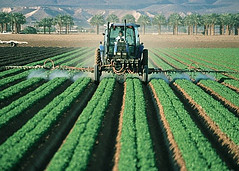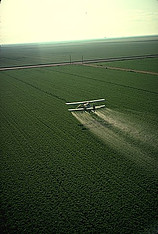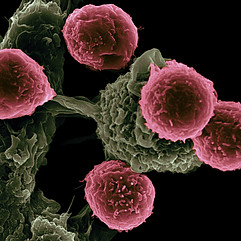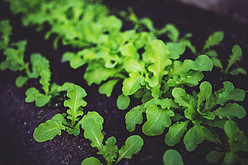 Most of us are aware that there is heavy pesticide use in commercially grown food but do we understand how are pesticides harmful?
Most of us are aware that there is heavy pesticide use in commercially grown food but do we understand how are pesticides harmful?
So just how are pesticides harmful?
What health problems can arise?
What can we do to protect ourselves and our loved ones?
Last year when our grandson was diagnosed with type 1 diabetes, I began searching for the most healthy ways to feed not only him but us as well.
It is important to us, as grandparents, to be as healthy as we can be to enjoy many fun activities with our grandchildren.
We don’t just want to watch them play, we want to play with them, take them bicycle riding, sailing, swimming, and on many hikes exploring this great world in which we live.
Part of healthy eating is understanding the fact that pesticides are broadly used in food production and the effect this may have on our health.
As I discovered in my research, simply buying ‘organic’ does not solve the problem that opens a whole other can of worms so to speak.
Table of Contents
What are Pesticides

Pesticides are any substance meant to control, prevent, or kill pests including weeds. They usually target insects, rodents, or microorganisms or they act as a nitrogen stabilizer in soil.
Insecticides: are used to reduce the destruction and contamination of both growing and harvested crops by insects and their eggs.
Herbicides: are most commonly known as a weed killer and also help improve crop yield.
Rodenticides: are important for controlling the destruction of crops by rodents and rodent-borne diseases
Fungicides: protect harvested crops and seeds from damage by fungal rot.
Many of the pesticides used commercially today are synthetically or chemically made in laboratories and are designed with a longer shelf life and easy distribution in mind.
Think you are safe if you buy ‘organic’?
There are too many types to outline here, but the EPA has published a list of registered biopesticides.
Also, the US Department of Agriculture maintains a national list of approved synthetic and restricted organic pesticides.
Organic farmers use biopesticides. These are naturally occurring pesticide chemicals that have evolved in plants.
Keep in mind ‘organic’ does not mean ‘pesticide-free’. Organic refers to specialized kinds of pesticides that occur in nature and are used in place of synthetic pesticides.
Also, note that ‘natural’ does not mean ‘non-toxic’. Organic pesticides can be just as harmful to your health and the environment as synthetic pesticides.
Although the use of pesticides does have its advantages there are also drawbacks which include potential toxicity to humans and other animals.
How Are We Exposed to Pesticides
There are many ways humans can be exposed to pesticides.
Farmers and their workers can be exposed to pesticides through the treatment of crops, plants, and grain stores. If you live next to a farm you may be exposed by drift.
Humans can also be exposed through forestry, professional and domestic pest control, wood preservatives, the treatment of boat hulls with anti-fouling agents, and in treating live-stock with anti-parasitic treatments.
Many towns and cities spray parks, pavements, and playgrounds so we can be exposed when going to these areas. Many people use pesticides designed for home use to have that ‘perfect lawn and garden’.
Pesticides can also find their way into groundwater through leaching. This is of particular importance to those whose drinking water comes from their well. It is for this reason that I choose not to use pesticides in my garden. I don’t want it to end up in our well.
Of course, most of us are exposed to residues on the food we purchase which puts us at risk.
Can Pesticides Cause Harm
There are a growing number of studies linking pesticides to various human health effects. A 2004 review co-authored by the National Cancer Institute determined that ‘epidemiological evidence suggests that at current exposures, pesticides adversely affect human health. Some pesticides are also known to disrupt endocrine and/or hormone function.
I’m sure we all remember that landmark ruling where Monsanto was found liable for causing cancer in a school groundskeeper due to exposure to Roundup, their leading pesticide.
Acute Toxicity
Pesticides can be acutely toxic. What does that mean? It means that after even a single episode of ingestion, inhalation, or skin contact there can be harmful or even lethal effects. The symptoms become evident within 48 hours of exposure and can include:
- sore throat and/or cough
- allergic sensitization
- eye and skin irritation
- nausea, vomiting, diarrhea
- headache or loss of consciousness
- extreme weakness, seizures, and/or death
Chronic Toxicity
Over an extended time through repeated or continuous exposure, pesticides can cause harmful effects.
Low doses don’t always cause immediate effects but over time they can cause serious illness.
It seems the toxicity of low doses of pesticide exposure can have an accumulative effect, building over time until sufficient levels are present to cause adverse effects.
Long term pesticide exposure has been linked to the development of:
- Parkinson’s disease
- asthma
- depression and anxiety
- Attention deficit and hyperactivity disorder (ADHD)
- cancer (including leukemia and non-Hodgkin’s lymphoma).
Endocrine Disrupters
Endocrine disrupters refer to substances that can interfere with the body’s hormonal balance. Hormones are the chemical messengers of the body and are necessary to regulate several functions within the body, particularly growth and reproductive functions.
Very low concentrations of chemicals can affect the endocrine system in several ways:
- reduced semen quality leading to infertility, genital malformations, testicular and/or prostate cancer
- early puberty leading to ovarian cysts, uterine anomalies, breast cancer, pregnancy complications, infertility
- diabetes and obesity
- neurological disorders ( particularly in brain development and degenerative diseases such as Parkinson’s disease)
- hyper and hypothyroidism and thyroid tumors
Carcinogenic Substances
What makes a substance carcinogenic? When there is evidence of a substance causing cancer it is considered carcinogenic. There are many different types of cancer but they all are characterized by the development of abnormal cells that begin to divide uncontrollably and spread into surrounding tissues. Single exposure events rarely cause cancer but repeated exposure (regardless of if through ingestion, the eyes, skin, or lungs) even at low doses can lead to cancer.
Combined Effects
It is extremely concerning to think of the fact that the effects of individual chemicals can be enhanced or altered when combined with one or more other similar substances. This is often referred to as the cocktail effect.
We are exposed to quite an eclectic cocktail of chemicals every day and nobody knows the impact this consistent low-level exposure will have on us long term.
Not only do we not understand the effects but there is no attempt within current pesticide regulation to address the issue.
The current system only assesses the safety of each chemical.
We, humans, are essentially an experiment.
What Can We Do to Protect Ourselves
So now we have learned about pesticides and discovered how potentially dangerous they are. We have a choice to make. Are we going to continue exposing ourselves and risking our health? or Are we going to make healthier choices leading us to an overall healthier lifestyle?
To minimize our exposure to pesticides, I grow as much of our fruits and vegetables as I can. By growing my own I am ensuring that our food is not sprayed with a chemical and it tastes better.
Try to purchase locally grown produce at the local farmers market where you can ask them about their pesticide use.
When I do have to buy fruits or vegetables I make sure I wash them well with Baking soda and water before using them in any recipe.
When visiting public places that are usually sprayed we wear closed-toe shoes and be sure to shower or wash when returning home.
Final Thoughts
We now have a better understanding of how are pesticides harmful. That knowledge now empowers us to make some lifestyle changes to better protect ourselves and our families.
It doesn’t take a lot of changes to better protect ourselves.
Grow at least some of our produce. Our son grows tomatoes and lettuce on his balcony in his apartment.
Try buying your produce at the local farmers market and ask them about their pesticide use.
Wash purchased produce with baking soda and water before consuming it.
Shower or at least wah well after visiting public sprayed areas such as parks.
Stop using pesticides on our lawns.
Being aware of the dangers is the first step to protecting ourselves.
What are some of the ways you have found to protect yourself and your family from pesticide exposure?
I look forward to reading your ideas in the comment section below.
Take care and stay safe.
“I am not in any way a medical practitioner, please do not rely on the information on our website as an alternative to medical advice from your doctor or another healthcare provider. We only share our experiences.”

Your post is informative and somewhat an eye opener maybe not to many, but for me. Because of the busy life were living these days, watching out for the food we eat is something that’s being overlooked by many, me included.
We thought that if we eat veggies and fruits, it’ll make us healthy and live longer. Without even thinking of how are those produce has been produced?
After reading your post, I realize that I should be more careful this time. Before, I was using Fit to wash vegetables and fruits, but due to cultural differences my mom-in-law somewhat against it. But now, I’m not going to listen to her, LOL!
I don’t have a green thumb, growing my own plants would be a no no for me.
So, do you think baking soda is better than fit? What other ways you suggest on washing veggies?
Thanks for commenting Mina. I am glad you are washing your vegetables, it is so important these days with pesticide use so rampant. I haven’t used fit or any of the other products you can purchase for cleaning vegetables. I hope they truly are as eco-friendly as they claim. I can’t justify purchasing a specific product to clean vegetables when baking soda is always in my pantry anyway. For strawberry I give them a quick soaking in vinegar water, this not only cleans them it helps them last longer in the refrigerator. It isn’t difficult to grow vegetables. You could start with beans in a pot. They are super easy to grow and so delicious.
I am in complete agreement with you, we must shop at local farmers’ markets or grow our own. We have the power to change the food industry by voting with our wallet.
You talk about wearing closed-toe shoes, will the chemicals affect you from just being on your skin?
Catherine, thanks for dropping by and leaving a comment. You are so right about voting with our wallets. It is time the people stand up and voice their opinions about what products we want.
From my research into pesticides, some can affect us over time by leaching into the skin. You would not get enough chemicals absorbed through the skin by just walking through the park but the effects can be accumulative, so over time and repeated exposure you will increase the risk of harmful effects. Wearing closed-toed shoes walking through pesticide-treated parks will minimize the amount of chemical leaching into the skin. I’d rather be cautious as the full longterm effects of these chemicals are still uncertain.